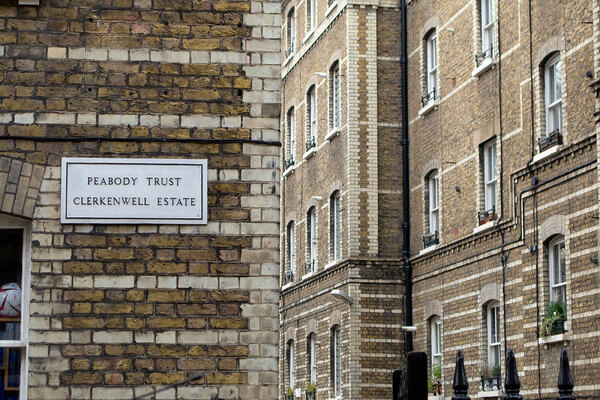You are viewing 1 of your 1 free articles
Peabody’s half-year surplus nearly halves as sales turnover hit
Peabody has become the latest G15 landlord to report a sharp drop in its half-year surplus as sales turnover fell sharply, completions slid and it spent more on existing stock.

The 108,000-home landlord reported a surplus of £41m in the six months to September, compared with £79m in the prior year.
Overall turnover fell 5% year-on-year to £489m.
In a stock market update today, Peabody said the surplus drop was due to higher interest rates, a sharp fall in completions and a lower surplus on joint ventures.
The landlord joins Southern Housing, Notting Hill Genesis and L&Q in reporting a significant fall in half-year surplus in recent weeks.
Peabody acknowledged the “economic challenges”, but said its drop in surplus was also “a function of transactions and completions happening outside of the reporting period”.
On an operating basis, Peabody’s surplus was down £6m year-on-year to £131m.
The London landlord, which completed the final stages of its merger with Catalyst this year, reported 654 handovers in the half-year. This was 350 fewer than in the same period last year.
Revenue from sales in the half-year was £75m, a drop of £57m year-on-year. However, its margin on sales improved to 17%, compared to 8% in the prior year.
Peabody said its sales programme is currently behind schedule, but it has a strong level of exchanges and reservations.
“We’re continuing to carefully manage our development programme and maintaining appropriate flexibility on the level of future spend and commitments,” the association said.
At the same time, the landlord explained there is “no expectation” that its sales will achieve the same level as its last financial year.
Like many of its peers, Peabody has also been ramping up spending to improve its existing homes.
The organisation has faced multiple severe maladministration findings and in August was one of 14 social landlords that housing secretary Michael Gove wrote to over tenant failures.
In total, Peabody said it spent £184m in the six-month period on current stock, which was £39m more than the same period last year. This included £43m on building safety, plus improving insulation and “proactively managing” damp, mould and condensation, repairs and maintenance, as well as surveys of the condition of 6,560 homes.
Eamonn Hughes, outgoing chief financial officer at Peabody, said: “We continue to invest in getting closer to residents through a renewed local focus, with more neighbourhood teams, proactive condition surveys and a plan for a more effective and efficient repairs service.”
Mr Hughes, who is due to step down next year, added: “We continue to make progress with our substantial change programme and this trading update demonstrates that we are prioritising investment.”
The association’s net interest costs, including loan break costs, were £90m in the period, compared to £72m in the same period last year.
Peabody said it has £1.4bn of cash and undrawn facilities, while 77% of its borrowing is at fixed rates.
In September, Peabody retained its G1/V2 compliant status, but the English regulator said the landlord’s “high levels” of stock investment expenditure, including significant fire and building safety works, was “putting pressure on its interest cover ratios”.
Sign up for our development and finance newsletter
Already have an account? Click here to manage your newsletters












